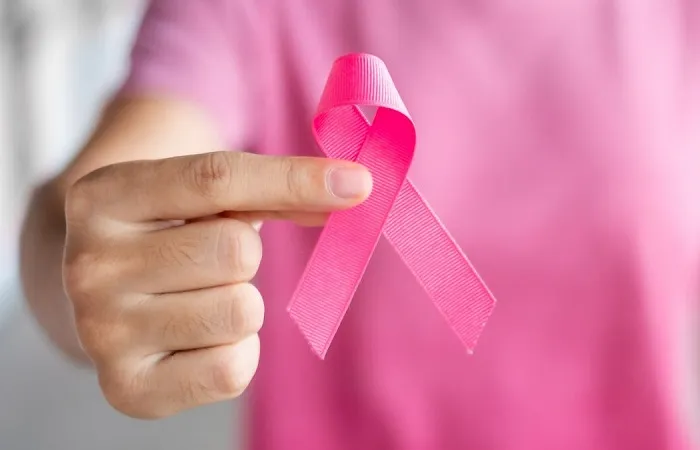Two groundbreaking innovations in the field of breast cancer care have recently emerged from Iran, reflecting the country’s growing capabilities in biomedical research and development. These developments include a newly designed negative pressure wound therapy device for post-mastectomy healing and an electrochemical biosensor for early detection of microRNAs associated with breast cancer.
Negative Pressure Device Offers Hope for Better Post-Mastectomy Recovery
Mehdi Pesaran, general manager of a knowledge-based Iranian company, announced the production of a prototype negative pressure device specifically designed for managing complex breast cancer wounds following mastectomy surgery.
“The production of a negative pressure device for breast cancer wounds is one of our achievements. A prototype of the device has been manufactured and we have received test results, which show good results,” Pesaran stated.
He emphasized the need for such a device due to the nature of wounds resulting from mastectomy—the surgical removal of breast tissue, which typically involves large incisions and excessive fluid secretion due to active lymphatic tissue in the chest area.
“These patients also undergo radiation or chemotherapy, so the body is not ready to heal the wound quickly,” he noted. “Hence, it takes time for the wounds in these patients to be treated and healed. Currently, to treat such wounds, very slight negative pressure is applied to the patient and special dressings are used to treat the wound. Inspired by this global concept, we have produced a prototype of this product.”
Negative pressure wound therapy (NPWT) is a globally recognized method that promotes healing by creating a vacuum environment around the wound. This helps in removing exudate, reducing swelling, and increasing blood flow, thereby accelerating the healing process. Pesaran’s team has localized this technology and adapted it specifically for Iranian patients recovering from breast cancer surgery.
Advanced Biosensor for Early Detection of Breast Cancer MicroRNAs
In a related research milestone, Jalil Parchekani Choozaki, a PhD graduate of Tarbiat Modares University (TMU) in Tehran and the University of Toronto, has developed an electrochemical biosensor capable of detecting microRNAs associated with breast cancer in its early stages.
Parchekani’s doctoral thesis, titled “Design and Fabrication of Electrochemical Biosensors for Early Detection of MicroRNAs Associated with Breast Cancer in a Microfluidic Platform,” addresses a critical area of oncology—early diagnosis.
“Finding ways to prevent cancer and detect cancer early has always been very important,” he said. “Cancer, if detected late, can spread to other parts of the body and metastasize through lymphatic or blood vessels to infect other tissues. Once metastasis occurs, it becomes very difficult to treat because it develops into a malignant tumor.”
MicroRNAs are small non-coding RNA molecules that play a key role in regulating gene expression. Changes in their levels can indicate the onset of various diseases, including cancer. Parchekani’s biosensor operates in a microfluidic platform, combining precision, speed, and low cost, making it a promising tool for early breast cancer screening.
The Growing Burden of Breast Cancer
According to the World Health Organization, breast cancer and lung cancer are the two most prevalent forms of cancer globally. Breast cancer, in particular, remains the most common cancer among Iranian women. While the disease can occur in men, its incidence in women is significantly higher.
With the rising number of breast cancer cases, these innovations from Iran are timely and essential. The wound care device developed under Pesaran’s leadership addresses a major clinical need in surgical aftercare, while Parchekani’s biosensor advances the field of early diagnosis, potentially improving survival rates through timely intervention.
Innovation through Collaboration and Knowledge Sharing
Both projects reflect the growing emphasis on research and development within Iran’s medical and scientific communities. By combining local manufacturing capabilities with international academic expertise, these researchers are contributing meaningful solutions to the global challenge of cancer care.
Parchekani’s academic background, which includes a PhD in Biophysics from the University of Toronto and advanced research at TMU, highlights the collaborative nature of contemporary scientific progress—where global education and local innovation intersect to yield impactful results.
Looking Ahead
The continued development and commercialization of these technologies could revolutionize breast cancer care in Iran and potentially beyond. From improving recovery times for post-mastectomy patients to identifying breast cancer at a molecular level in its earliest stages, these innovations promise to save lives and enhance quality of care.
As the medical world increasingly turns to precision medicine and patient-centered care, the work of Mehdi Pesaran and Jalil Parchekani Choozaki illustrates the power of ingenuity, dedication, and a commitment to improving public health.
Related topics:
- AstraZeneca India Gets CDSCO Nod For New Breast Cancer Treatment
- Rhian Sugden Stuns In Sheer Bodysuit Before Breast Reduction
- New Tissue Biomarker Predicts Aggressive Breast Cancer Risk


